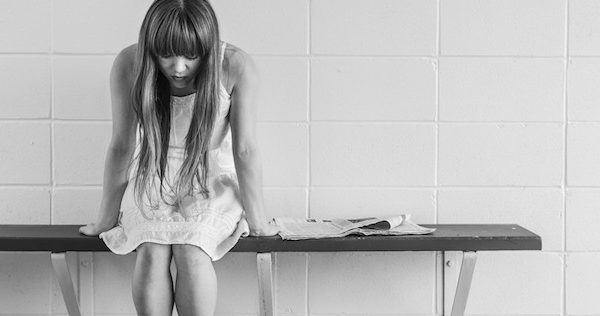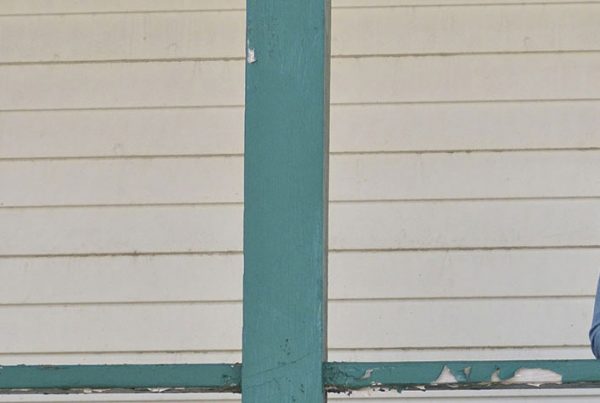Opening Note: I know it’s Valentine’s Day, but this is NOT a Valentine’s Day post. Not even close. BUT, this topic has been on my mind a lot lately, so I hope it will speak to the people who need it today!
Anyone who has had even the tiniest smidgen of counseling training has probably been told that there’s no wrong way to grieve. Whether you or someone you know has endured a loss, everyone has a different response and none is necessarily better than another.
I think there is a lot of truth to that. The journey of grief is slightly unique for every person, a truth that gives us patience with loved ones who are grieving. It encourages us to give them space to be, even when we don’t understand their behavior, and I can affirm that principle.
However, the fact that there is no wrong way to grieve does not mean there is no wrong way to heal.
To explain what I mean, let me tell you about a friend of mine who suffered a sports injury as a kid. He fractured his arm but his dad thought it was a sprain, so he never sought proper medical attention. Eventually the arm healed but it healed incorrectly. As a result, my friend cannot straighten his arm all the way, and he has a limited range of motion in his hand.
What is interesting about this particular story is that my friend is a fantastic athlete. Even with this handicap, he was an excellent baseball player. He simply learned to work around the injury.
The more I think about it, the more I find this story to be a helpful analogy for emotional healing. When it comes to healing, the human heart is much like the rest of the human body–it can heal, but it will heal incorrectly if not attended to in the right way.
What does incorrect healing look like? It is the kind of healing that enables us to move past the pain, to live a full life and even continue to love, but in ways that are marked by woundedness. It is the woman who hardens her heart to her dad so that he cannot hurt her anymore, but carries that hard shell into other relationships. It is the man who loses a loved one and, by all appearances is coping well, but lives in the quiet fear of future loss and compensates by over-controlling. It is the friend who suffers a relational betrayal and willingly extends forgiveness, yet struggles to trust people the way she did before.
We tend to call this “baggage,” but I wonder if these behaviors are also symptoms of a heart that healed the wrong way. After all, my friend was still able to use his arm to play sports and he was quite good! His injury did not cost him the use of his arm anymore than emotional pain costs us the use of our hearts. We can function effectively in this world and love people well, but to do so might also require compensating for an emotional handicap of a wound that never healed quite the right way.
What, then, does right healing look like?
In the same way that a broken arm requires the expertise of a doctor–one who knows and understands the arm’s design and can set it back accordingly–we need our Heavenly Physician to do the same for our hearts. God created us and God alone knows how to set our hearts aright, so the right kind of healing begins with Him.
Revelation 21:5 tells us, “And he who was seated on the throne said, ‘Behold, I am making all things new.’” Likewise, Colossians 3:10 explains that in Christ we put on a “new self” which is “being renewed in knowledge after the image of its creator.” The Bible contains many similar passages that all communicate this message of continual renewal. God is pruning the sin out of our lives and conforming us to his image, and that spiritual healing is a prototype for all healing in our lives.
Whenever we face a difficult time, we can and must turn to God for comfort, but it is also a time when God does a constructive work in us. That said, we can either choose to hide from the pain and distract ourselves as life eventually moves on, or we can choose to participate in the work that God is doing. We can embrace the breaking apart and rebuilding.
What does this look like practically?
As strange and difficult as it may seem, I think the best kind of healing comes from acknowledging our frailty before God and even taking responsibility for our own sinfulness. When you are ready, identify those areas of your life that need the re-shaping and refining hand of God so that He can mend them. In the case of betrayal, for instance, the call to forgive is always accompanied by the call to examine our own need of forgiveness and mercy.
By way of this perspective, we can welcome renewal as a friend rather than hiding from it as an enemy.
In the midst of pain and suffering, the last thing we want to do is examine ourselves or take responsibility for our short-comings before God. But I think this is an essential part of the spiritual renewal that the Bible describes. It is also essential to our identities. It is the difference between embracing an identity and a life marked by woundedness, or one defined by Christ-enabled agency and overcoming.
That is not to say that healing is immediate, or that you have somehow failed because you continue to carry the baggage of a past wound. The healing of God is always present and always hopeful. Because God’s grace is new every morning, we have the opportunity to embrace the healing of grace each and every day.
So on this Valentine’s Day, a day about hearts and love, I hope you will assess the state of our own heart. Is there some area of your heart that has healed incorrectly and continues to handicap you emotionally? If so, run to God, and let Him renew you!





“God created us and God alone knows how to set our hearts aright, so the right kind of healing begins with Him.”
Awesome truth, Sharon, and beautifully written. And I really appreciate your reassurance at the end that a lack of immediate healing is not a sign of failure. God has his ways, and he calls us to rest in them. Sometimes that happens as part of a rather lengthy healing process, I think.
Tim
I wonder how many times God has reset ” broken bones ” in my life? All the times that sin and hurt intruded into my life and I ignored them or thought I was good enough to handle it myself?
I really love the excellent analogy of the physical to the spiritual/emotional as you relate your friend’s physical injury and “recovery” to other kinds of hurt in life. I have just been studying the discipline of self examen, focusing in part on Psalm 139 and the importance of acknowledging that God knows us in utter intimacy–and yet loves us unconditionally. Herein are the headwaters of our journey to wholeness.
This message is very timely in my life. I’ve just re-opened a wound that never quite healed (or didn’t heal right?). It was surprisingly difficult when the bandage got ripped off…I hadn’t faced the pain in a long time. I had since left it because I didn’t know HOW to properly heal, and with no apparent changes taking place, I just couldn’t face it anymore. Your post confirms that now is the time, rather than trying to hide it away again, which is what my initial gut desire was once it was exposed again. I’m working on embracing the “breaking apart and re-building,” but it’s really hard. To look at all the shattered and scattered pieces before me, I can hardly see how they can be rebuilt into something new, that doesn’t bear the scars. Is it even possible? I picture the rebuilt version of the brokenness as a glued-together porcelain doll, whose cracks and seams are visible and ugly, ruining its beauty. I wonder if that is what proper healing will look like, or is that what improper healing looks like? Will proper healing instead look miraculous, as though no damage was ever done? I honestly don’t know, and I currently cannot bring myself to hope that it will indeed look, act and feel like it had never been hurt in the first place. I would ask you to pray for me. Thanks.
“What does this look like practically?” How can one describe the healing, the transformation, of a human heart? There is certainly no easy formula, but I agree that the important part for us to play is to examine our hearts and confess our sin. In my experience, real heart healing and transformation has always involved my honest repentance, painful as it might have been. This has only occurred after I realized that in spite of earnest attempts and good intentions, I was powerless to heal my own heart. “…for I am the Lord, who heals you.” Ex. 15:26